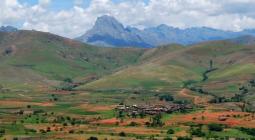“In the face of the climate crisis, this groundbreaking transaction serves as a model for vulnerable states, delivering rapid adaptation benefits for Barbados,” Prime Minister Mia Mottley said in a statement.
“The debt conversion will create the necessary fiscal space to finance upgrading the South Coast sewage treatment plant into a modern water reclamation facility plus several associated facilities,” the IDB explains, producing “water with a suitable quality for use in agricultural irrigation and groundwater recharge.”
The debt relief “also allows for investments to reduce water losses and improve the sewer system,” the release adds. “The reduction in marine and groundwater pollution will help protect marine ecosystems and nearshore reefs, groundwater quality, and safeguard public health.”
The deal includes $70 million in up-front funding from the IDB, $40 million from the UN Green Climate Fund, and loan guarantees of $150 million each from IDB and the European Investment Bank.
“Despite being surrounded by water, Barbados is one of the world’s most water-scarce countries in the world, and it faces high costs to import food as farmers lack water to expand crop production,” Forbes reports. “The swap sets sustainability targets related to the volume and quantity of reclaimed water generated by the upgraded sewage treatment plant. The government will incur a financial penalty if it fails to meet those targets.”
While debt swaps “have become increasingly popular ways for countries to free up cash to invest in nature conservation projects, with the likes of Bahamas and El Salvador completing deals this year,” Reuters adds, this is the first agreement of its kind to focus on climate change impacts. “Those involved said the new deal sets a benchmark for financing climate adaptation that avoids increasing the burden of public debt and will help meet the $359 billion a year the UN says is needed to help developing countries adapt to climate change.”
Reuters cites unnamed sources in other countries that “have already expressed an interest in following Barbados to market.”
Forbes says the Barbados deal “could be a model for other low-income countries” that were bitterly disappointed by countries’ failure to come up with a remotely adequate climate finance agreement at last month’s COP29 climate negotiations in Baku, Azerbaijan.
“COP29 was a dumpster fire. Except it’s not trash that’s burning—it’s our planet,” said Nikki Reisch, climate and energy director at the Center for International Environmental Law, as the negotiations concluded. “And developed countries are holding both the matches and the firehose.”




